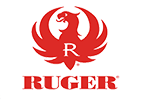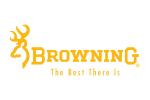Information for gun shooters - Public Health Act 2005
How are we exposed to lead?
Lead is present in most types of ammunition. it can be found in projectiles and the primers (the explosive that ignites gunpowder) of ammunition. Lead in the primer and the outer surface of the projectile is vaporised and released into the air after a firearm is discharged.
Lead dust and fragments are also released when the projectile impacts solid surfaces.
For these reasons, surfaces in shooting ranges may be contaminated with fine lead dust. This dust can also be breathed in and swallowed.
Lead dust may be suspended in the air or stick to people’s hands, hair, face, clothing and footwear.
This dust may be transported on your body, clothing and equipment from a shooting range into a car and into your home.
How can lead affect health?
People with high blood-lead levels rarely show obvious symptoms. However, exposure can cause:
• Headaches, tiredness, weakness and joint pain
• Reduced brain function, including memory loss and difficulty concentrating
• Heart, blood and blood pressure problems
• Damaged kidneys
• Reduced fertility
Infants, children and pregnant women are especially vulnerable.
• Even at low levels, lead can affect your children’s brain development and their ability to learn.
• Pregnant women can pass lead onto their unborn babies during pregnancy or to an infant during breastfeeding.
How can I reduce lead exposure?
Choice of ammunition
In the past, lead-based ammunition has been used because of its high density, lower cost and longer shelf life. However, alternatives to lead ammunition are available.
• If possible, use lead-free ammunition – ammunition that replaces lead-based primers with safer alternatives and/or ammunition that uses lead-free or jacketed projectiles that have a lead core covered with a copper or nylon coating.
• If available, use shooting ranges that encourage patrons to use lead-free ammunition.
Check the ventilation at your shooting range
Poor ventilation of indoor shooting ranges may result in unnecessary exposure to lead vapour and dust (good ventilation removes some lead vapour).
If the range regularly appears ‘smoky’ or you have a metallic taste in your mouth it is likely that ventilation is poor. Try to use a shooting range with adequate ventilation or use an outdoor range.
Practice good hygiene
Good hygiene practices can reduce the risk of lead exposure.
Do not eat, drink or smoke while shooting as this makes swallowing of lead more likely.
Wash your hands, neck and face with soapy cold water before taking breaks and when you have finished shooting for the day.
Shower after shooting. If showers are not available in your shooting range it is recommended you shower as soon as you return home.
Change your clothes and shoes before leaving the shooting range.
Wear personal protective equipment
Limit lead exposure by:
Using clothing and shoes dedicated to shooting activities or wearing disposable coveralls. Clothes used for shooting should always be washed separately from general laundry.
• Wearing gloves when shooting, handling ammunition, casings or when cleaning handguns.
• Wearing Australian Standard 1716 (2013) approved respirator.
Choose the right shooting range
Before using a shooting range consider the following:
Wearing Australian Standard 1716 (2013) approved respirator.
• Is it well-ventilated?
• Are the range and all communal areas clean and free of visible dust?
• Does it promote the use of lead-free ammunition and require good hygiene practices?
• Does it offer changing rooms, lockers and showers?
Good housekeeping practices for cleaners or shooting ranges
Regular cleaning and maintenance of shooting ranges are important to reduce the build-up of lead on surfaces. Cleaners and volunteers should take special precautions to limit personal exposure during cleaning.
Wear protective clothing such as disposable coveralls, head coverings, and shoe covers when cleaning. Never wear clothes or footwear used for cleaning a range at home.
Wear an Australian Standard 1716 (2013) approved particulate respirator when cleaning a shooting range.
Never dry sweep dust and debris. Dust should be cleaned by wet mopping or using a vacuum cleaner fitted with a HEPA (High-Efficiency Particulate Air) filter.
Minimise airborne dust when cleaning bullet trays by emptying trays inside closed plastic bags and spraying a water mist over debris while cleaning.
Protect your family
Don’t bring lead home with you
Lead is ‘sticky’ and can be transported from a shooting range on your body, clothes and equipment, into a car and your home. This may expose your family and children. Always wash or shower and change clothes before leaving a shooting range.
Your children are especially at risk
Think twice before taking children to a shooting range and take the steps described here to ensure your body and clothing are free of lead dust before embracing children or handling toys and personal effects.
If you are pregnant, consider the risks of lead exposure to yourself and your baby and take appropriate precautions.
Talk to your doctor
If you regularly visit shooting ranges let your doctor know and get your blood lead level tested.
For more information:
• Consult your doctor for medical advice.
• Department of Health, Environmental Health 1800 020 103.
• Your local Public Health Unit:
https://www.health.qld.gov.au/system-governance/contact-us/contact/public-health-units










